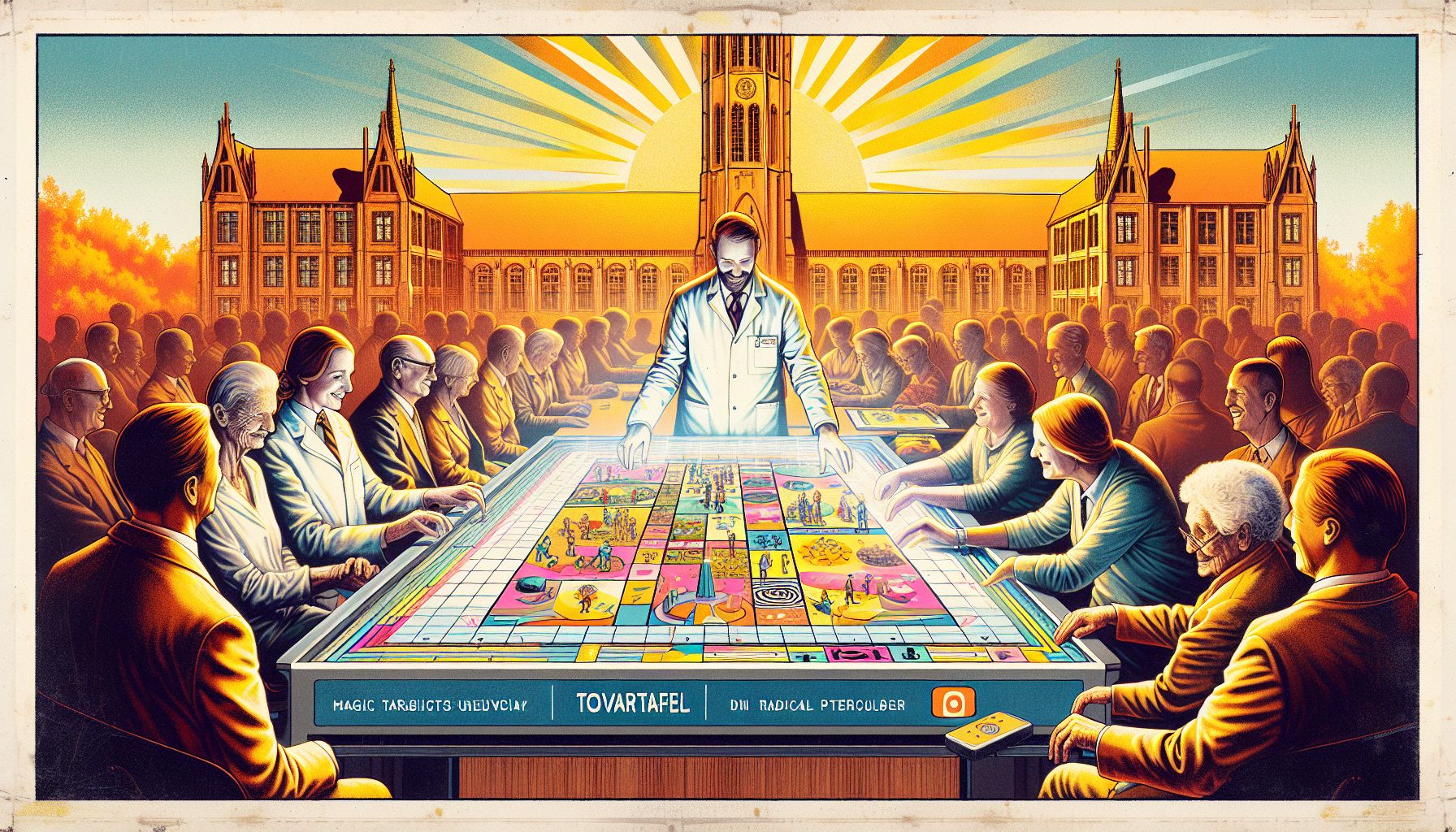Revolutionary Light-Based Speech Therapy Device Debuts at West Liberty University

Delft, Monday, 8 July 2024.
West Liberty University introduces the Tovartafel, a groundbreaking ‘magic table’ that uses light projections and infrared sensors to revolutionize speech and dementia therapy. This first-of-its-kind device in the state engages patients through interactive games and activities, showing promising results in improving patient demeanor and therapy outcomes.
Innovative Technology in Speech Therapy
The Tovartafel, which translates to ‘magic table’ from Dutch, is an innovative rehabilitation device that utilizes advanced technology to aid in the treatment of speech disorders and dementia. Developed by the West Liberty University Speech & Hearing and Behavioral Health Clinic, the Tovartafel leverages light projections and infrared sensors to create an engaging and interactive therapy experience for patients. This technology allows patients to participate in activities such as playing movement-oriented games, categorization exercises, and even relaxation activities like virtual gardening and painting, all while tracking their hand and foot movements in real-time.
Benefits for Dementia Patients
The Tovartafel has shown significant benefits, particularly for dementia patients in the later stages of the disease. By providing visual and cognitive stimulation, the device helps prevent cognitive decline and improves patient engagement and demeanor during therapy sessions. For instance, Sara Alig, a speech-language pathologist at WLU, noted remarkable behavioral improvements in patients using the device. One such example involved a patient who displayed a complete demeanor change upon interacting with the Tovartafel, becoming noticeably calmer and more engaged [1].
Impact on Younger Patients
In addition to its benefits for dementia patients, the Tovartafel has also been advantageous for younger speech therapy patients. The interactive nature of the device aids in improving sound discrimination and memory, making therapy sessions more effective and enjoyable. The device’s ability to simulate activities like gardening not only makes the sessions more engaging but also promotes social communication, physical activity, and cognitive reserve among patients [1].
Development and Support
The Tovartafel is the first device of its kind in the state, made possible through a grant from the Milan Puskar Foundation. This funding has enabled the WLU Speech & Hearing and Behavioral Health Clinic to integrate this cutting-edge technology into their therapy programs, enhancing the treatment of both speech disorders and dementia. The device has quickly become a popular tool among adult patients, offering a refreshing alternative to traditional speech workbooks and showing a quicker turnaround in reaching therapy goals [1].
Broader Implications
The introduction of the Tovartafel at WLU highlights the growing role of advanced technology in healthcare. Similar innovations are being seen globally, with artificial intelligence (AI) and machine learning (ML) playing crucial roles in the field. For instance, AI-driven methods have shown promise in improving the diagnosis and therapy of pediatric speech and language disorders, offering personalized therapy and encouraging greater parental involvement [2]. These advancements suggest a future where technology and medical knowledge work in tandem to significantly enhance the quality of life for individuals with speech and language impairments.

